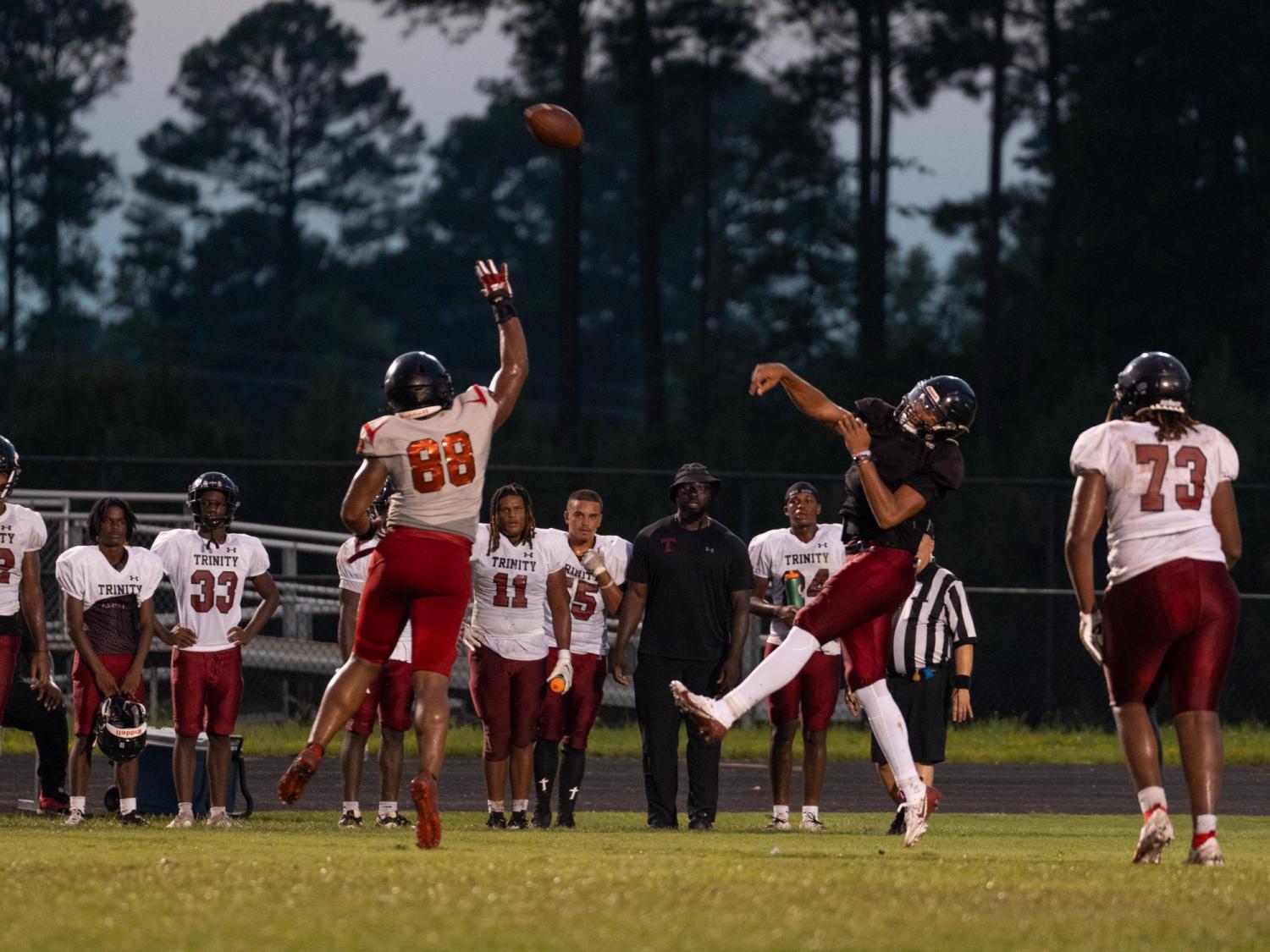Don’t let your teen athlete get sidelined: why sports physicals matter
This article was written for our sponsor, Advance Community Health
Being a parent of a teenage athlete is a juggling act. Between practices, games, equipment, and meetings, it’s easy to see the annual sports physical as just another chore. But these check-ups are more than formalities – they’re essential for injury prevention, finding hidden health concerns, and optimizing opportunities for peak performance.
“All children who are participating in any sports need a sports physical. The sports physical reviews information that will give all children the best opportunity for full and safe sports participation,” said Dr. Elizabeth Johnson, DO, FAAP.
Johnson, who is a Board-Certified Pediatrician at Advance Community Health in Raleigh, added, “It is important to see a pediatrician specifically as they are trained to identify any medical problems that may interfere with your child having a healthy and safe sports season.”
Prevention and early detection: Avoiding injuries and safeguarding health
One primary benefit of a sports physical is injury prevention. During the exam, doctors assess an athlete’s overall fitness level, flexibility, strength, and potential areas of weakness. Muscle imbalances, joint instabilities, or past injuries may increase the risk of future problems. With this knowledge, the doctor can recommend targeted exercises, stretches, or even physical therapy to address any concerns and strengthen vulnerable areas. This proactive approach can significantly reduce the likelihood of athletes getting sidelined by preventable injuries.
Sports physicals also play a key role in detecting underlying health conditions. Through a detailed medical history review and physical examination, doctors can screen for various concerns. This includes heart conditions, which, if left undetected, can put athletes at serious risk during strenuous activity. Dr. Johnson emphasized this point, saying, “During a sports physical, a pediatrician will address any concerns, but the most important things involve heart health, bone and joint health, and any chronic diseases that may affect physical activity.”
Additionally, they can identify problems like asthma, allergies, or even conditions like diabetes that may impact performance or require specific management plans during sports participation. Early detection allows for proper treatment and ensures the athlete’s safety while playing.
Furthermore, sports physicals serve as a valuable tool for optimizing athletic performance. By assessing an athlete’s cardiovascular health, lung capacity, and overall fitness level, doctors can provide valuable insights into training and nutrition strategies.
Beyond the physical: Addressing mental wellness
Beyond the physical benefits, sports physicals offer an opportunity for open communication to address mental health concerns. The doctor-patient interaction can be a safe space for athletes to discuss any anxieties, pressures, or mental health challenges they might be facing related to sports. Early intervention for issues like performance anxiety or eating disorders can significantly improve an athlete’s overall well-being and prevent these concerns from hindering their progress.
For young athletes, sports physicals are particularly important, as Dr. Johnson highlights, “It’s important to establish a medical home with a trusted pediatrician who develops a relationship with you and your child. Seeing your pediatrician for routine well-child visits and sports physicals will keep all of their medical history up to date.” These check-ups establish a baseline for an athlete’s health and development, allowing doctors to monitor growth patterns and identify any potential issues early on.
Preparing for the sports physical: What to expect
Parents can play a vital role in ensuring a smooth sports physical for their child. Dr. Johnson outlines what to expect. She said, “Parents should expect to fill out an in-depth preparticipation physical evaluation form. The form will consist of questions addressing family history (especially cardiac), vaccinations, your child’s past medical history and diagnoses, previous surgeries, and any chronic conditions (including medications taken for these conditions).” Parents should also be prepared to discuss any concerns they may have. According to Dr. Johnson, the most common questions and concerns usually involve management of chronic conditions such as asthma or allergies.
Advance Community Health is encouraging all athletes to get a sports physical with a trusted pediatrician by offering a special on sports physicals through August 31. To learn more, visit https://advancechc.org/sportsphysicals/.
This article was written for our sponsor, Advance Community Health
Source: highschoolot.com
